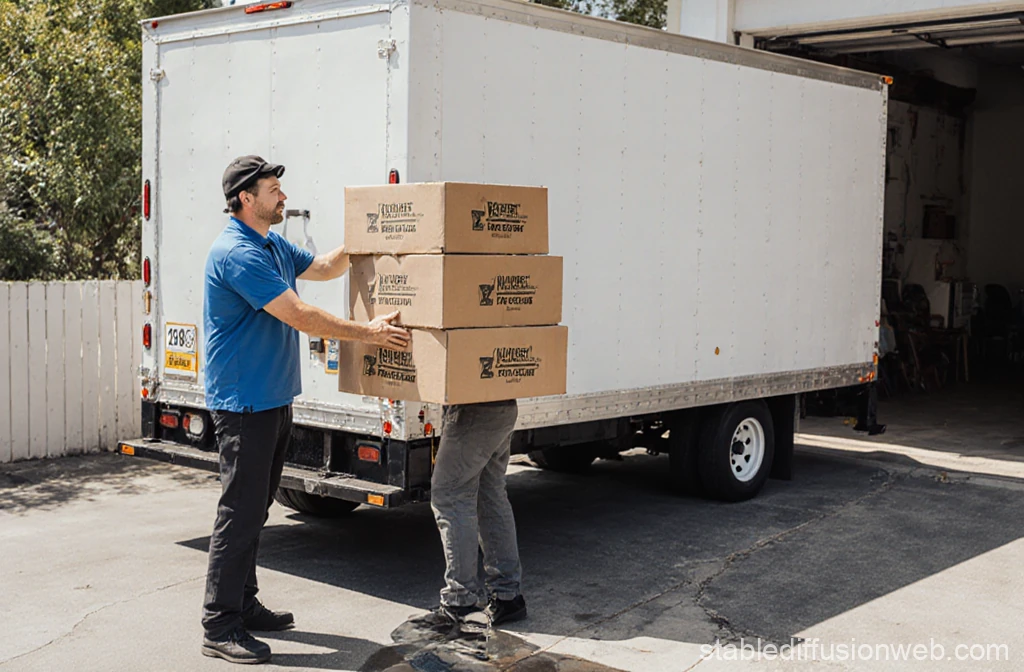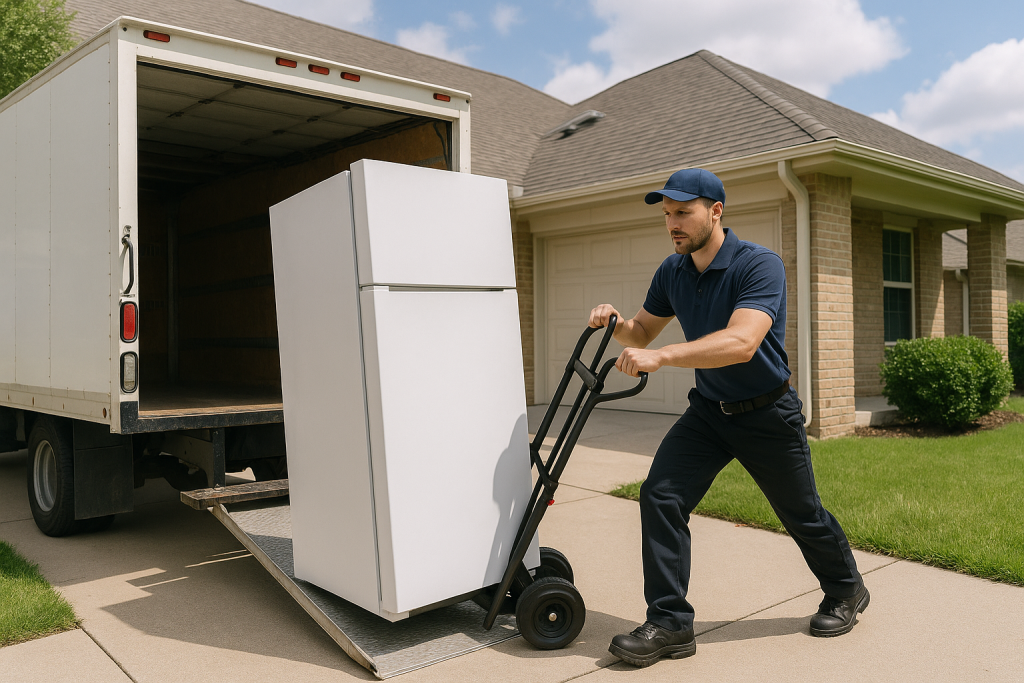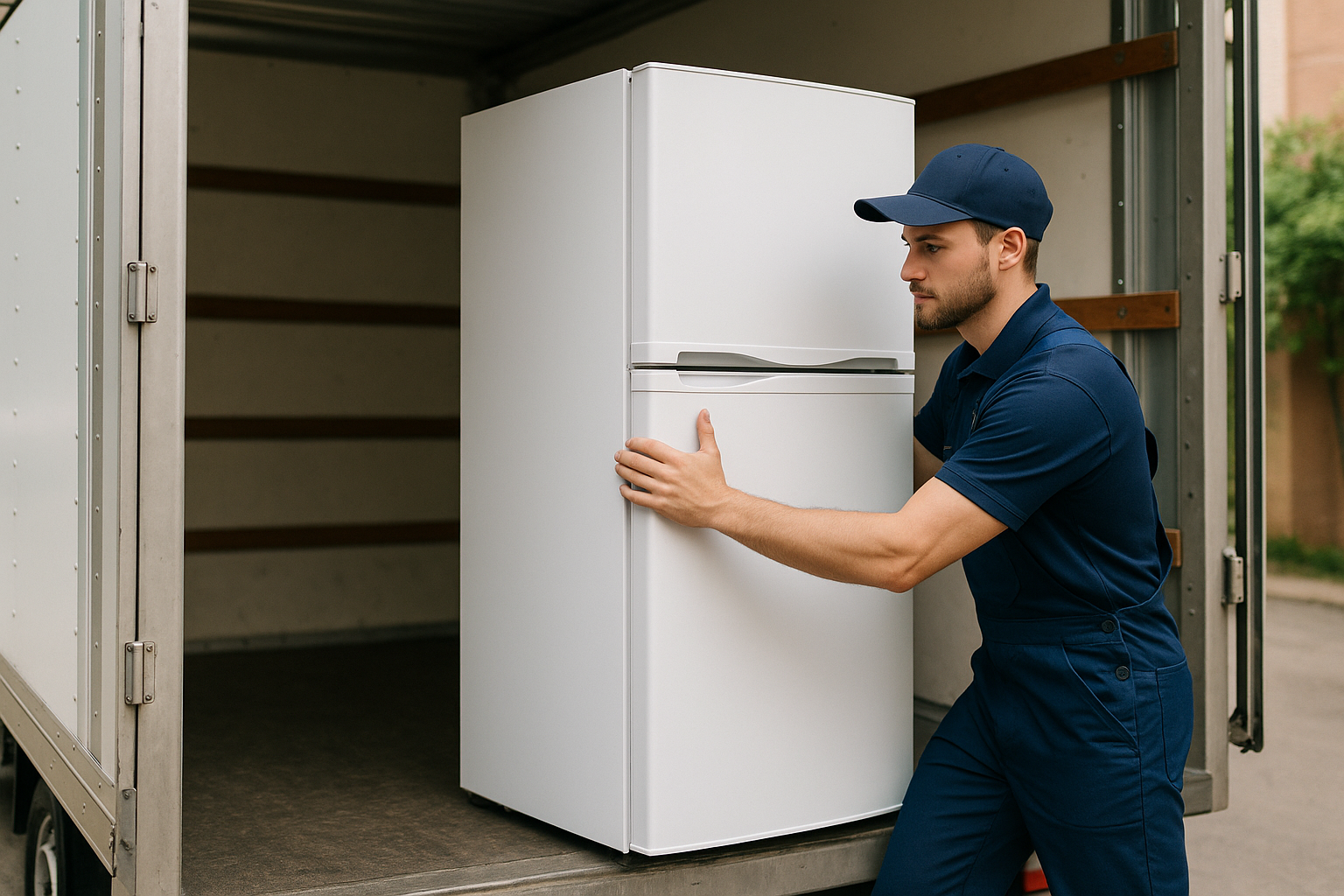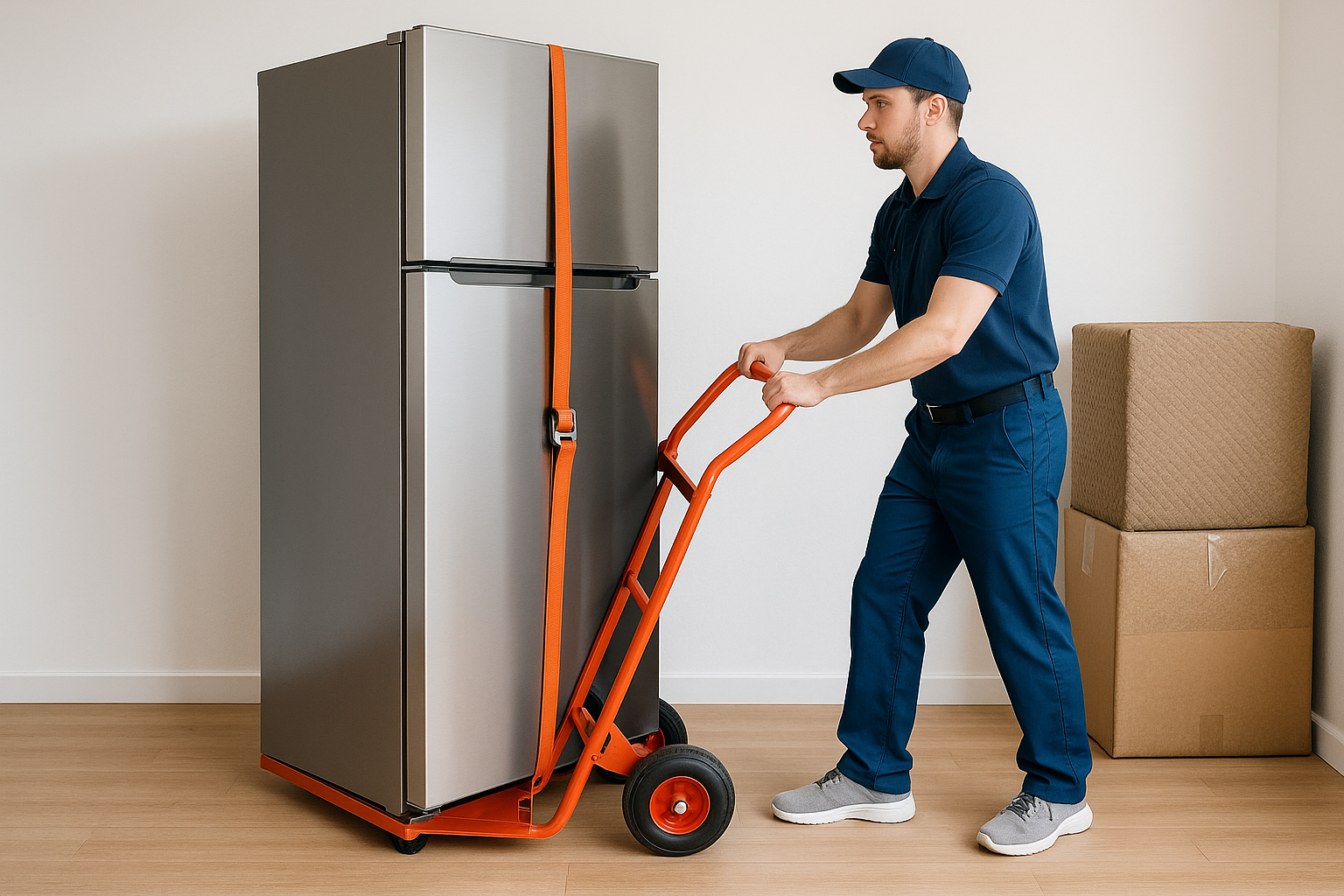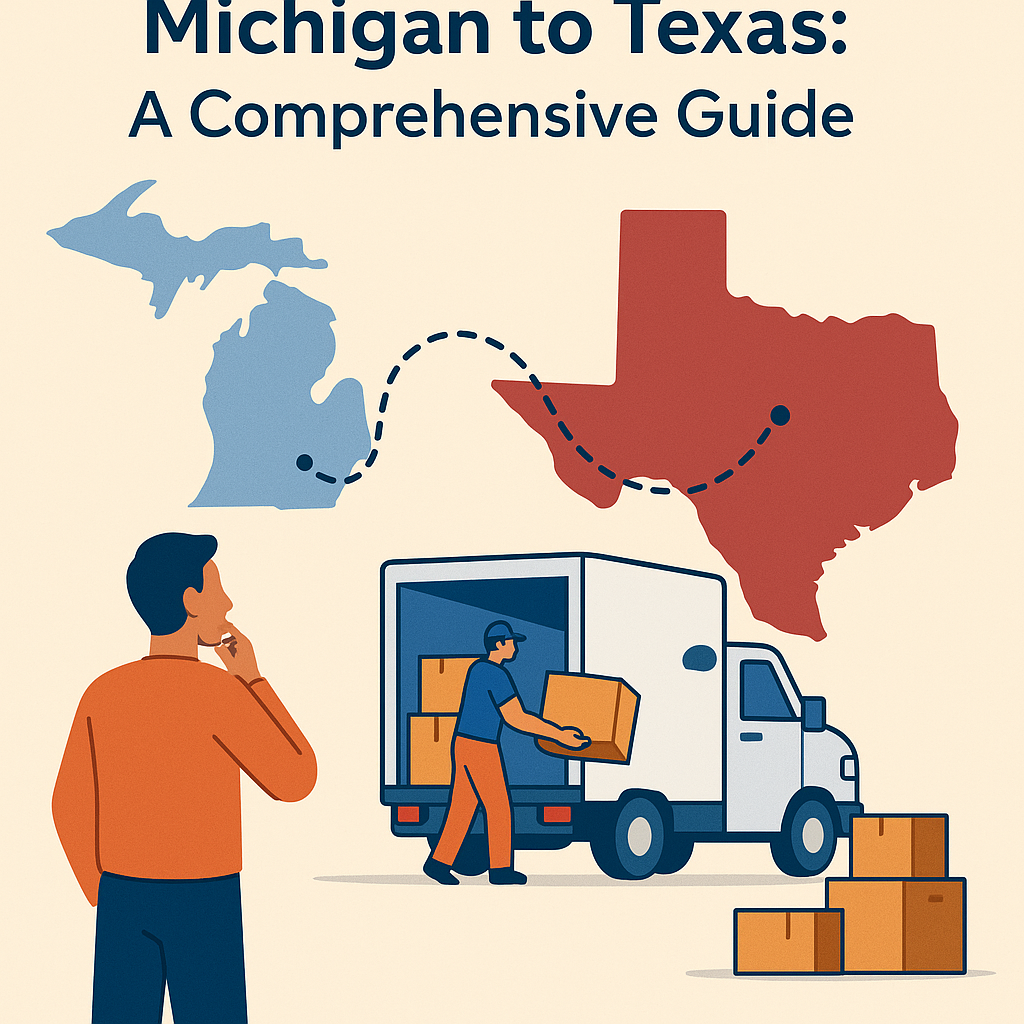Moving to another state can be both exciting and overwhelming. Professional interstate movers make long-distance relocations manageable and stress-free. From packing fragile items to safely transporting your belongings, they handle every step of the process.
Understanding moving costs and choosing the right moving company can save time, money, and stress. This guide will help you make informed decisions for a smooth interstate move.
What Do Interstate Movers Do?
Interstate movers specialize in moving households or businesses across state lines. They provide services that local movers may not, including:
- Packing and unpacking
- Loading and unloading heavy items
- Safe transportation across states
- Short-term or long-term storage
- Insurance coverage for valuable belongings
Hiring a professional moving service ensures your items arrive safely and on schedule.
Factors That Affect Moving Costs

The price of hiring interstate movers depends on several factors:
- Distance: Longer moves cost more.
- Weight and volume: More belongings require larger trucks and additional labor.
- Packing services: Full-service packing increases convenience but adds cost.
- Insurance coverage: Protecting valuables slightly raises costs.
- Timing: Moving during peak seasons or on weekends can be more expensive.
- Special items, such as pianos, antiques, or fragile items, may incur additional fees.
Understanding these factors helps you plan your budget and compare quotes effectively.
How to Choose a Moving Company
Selecting the right moving company is critical for a smooth relocation. Here’s how to choose:
- Check licenses and insurance – Ensure the company is certified for interstate moves.
- Read reviews – Online reviews help gauge the quality of service.
- Compare quotes – Request detailed estimates from multiple companies to find the best value.
- Verify services – Confirm the company offers packing, storage, and transportation.
- Experience matters – Experienced movers handle complex moves efficiently.
A reliable moving company reduces risks and makes your move stress-free.
Benefits of Hiring Professional Interstate Movers
Hiring professional movers provides multiple advantages:
- Saves time and energy – Experts handle all heavy lifting and logistics.
- Reduces damage risk – Proper packing techniques protect fragile items.
- Decreases stress – You can focus on settling into your new home.
- Offers flexible services, including partial packing, storage, and full-service options.
- Provides insurance protection – Coverage for accidents or loss.
These benefits make hiring movers worthwhile for any long-distance relocation.
Tips to Reduce Moving Costs
You can lower your moving costs without sacrificing quality:
- Declutter – Sell or donate items you no longer need.
- Pack yourself – Doing some or all packing reduces labor costs.
- Book early – Early bookings may offer better rates.
- Compare multiple movers – Find competitive pricing for your move.
- Move off-peak – Schedule weekdays or non-peak seasons.
- Ask about discounts – Companies often offer promotions for seniors, the military personnel, or those making early reservations.
Even small savings can make a big difference in your total moving expenses.
Preparing for Your Interstate Move
Proper planning ensures a smooth relocation. Follow these steps:
- Create a moving checklist – Track tasks, deadlines, and contacts.
- Inventory belongings – Know exactly what you’re moving.
- Label boxes clearly – Makes unpacking faster and easier.
- Pack essentials separately – Keep important documents and daily items within easy reach.
- Notify relevant parties – Update your address with utilities, banks, and the postal service.
- Plan transportation – Coordinate with movers to avoid delays.
Preparation reduces stress and keeps your move organized.
Frequently Asked Questions (FAQs)
Q1: How far in advance should I book interstate movers?
Book at least 4–6 weeks in advance of your move to ensure availability.
Q2: Are interstate movers insured?
Yes, most licensed movers provide basic insurance with optional coverage for valuable items.
Q3: How are moving costs calculated?
Costs depend on various factors, including distance, weight, volume, packing services, storage, and any special requirements.
Q4: Can I pack my items myself?
Yes, partial packing is allowed by most movers and can lower moving costs.
Q5: What if my items are damaged?
Reputable moving companies offer insurance and claims processes for lost or damaged belongings.
Q6: Can movers handle fragile or special items?
Yes, professional movers are trained to handle fragile, heavy, and specialty items safely.
Q7: Do moving companies offer storage solutions?
Most companies provide temporary or long-term storage if your new home isn’t ready.
Why Hiring Interstate Movers Is Worth It

Long-distance moves are more complicated than local moves. Experienced interstate movers offer expertise, efficiency, and peace of mind. They minimise risks and ensure your belongings reach your new home safely and on time.
When selecting a moving service, focus on:
- Reputation and customer feedback
- Transparent pricing and moving costs
- Full-service options, including packing and storage
- Proper licensing and insurance
- Professional communication
The right movers can turn a stressful move into a smooth and organized experience.
Relocating to a new state doesn’t have to be overwhelming. With trusted interstate movers, you save time, reduce stress, and ensure your belongings arrive safely and securely. Compare moving companies, understand moving costs, and plan for a successful long-distance move.
Professional moving services make all the difference in creating a seamless, stress-free relocation experience. Investing in expert movers ensures your move is efficient, organized, and worry-free.
